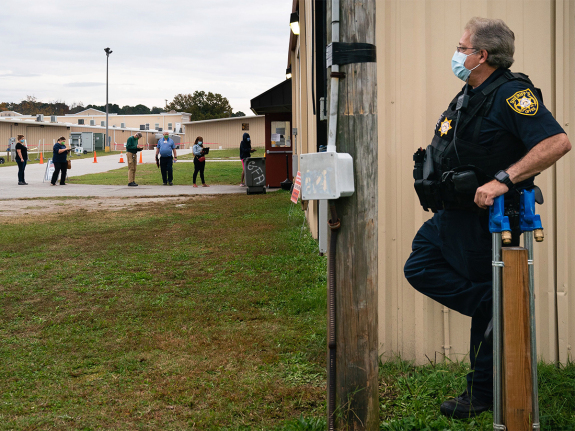
In 1981, the Republican National Committee sent hundreds of armed, off-duty police officers to the polls in the state of New Jersey. Dressed in official-looking “National Ballot Security Task Force” armbands, they demanded voter registration cards from people waiting in line in heavily Black and Hispanic districts, turning some voters away and intimidating others into not voting at all.
As my colleague Clare Malone has written, the whole thing was illegal. After a lawsuit, it led to a 37-year-long ban preventing the RNC from organizing poll watching efforts. This will be the first presidential election without the ban in place. It is also a presidential election where the incumbent has cast doubt on the trustworthiness of the election, toyed repeatedly with the idea of not giving up office and recruited thousands of poll watchers. It is also a presidential election where far-right militias and other supporters of the president have discussed showing up, armed, at polling sites.
But despite that tension, neither experts in election law nor experts in militia and armed radical groups believe we are likely to see a repeat of what happened in New Jersey nearly four decades ago. Why? Partly, it’s because laws heavily restrict what poll watchers can do and how they can do it. And partly, experts told me, it’s because the actual job of poll watching is unlikely to appeal to the groups and individuals whose presence would be most dangerous.
None of the experts I spoke to thought it was a good idea to dismiss the risk of armed or threatening poll disruptors out of hand. But they did want to make sure that the media and the public were realistic about the concern.
“I’m not sure it would be accurate to say I’m not worried. It’s my job to worry about everything,” said Myrna Pérez, director of the Brennan Center’s Voting Rights and Elections Program. “But in terms of assessing risk and the probability of it being more than a bunch of isolated incidences, there’s reason to believe this is lower on the concern list.”











